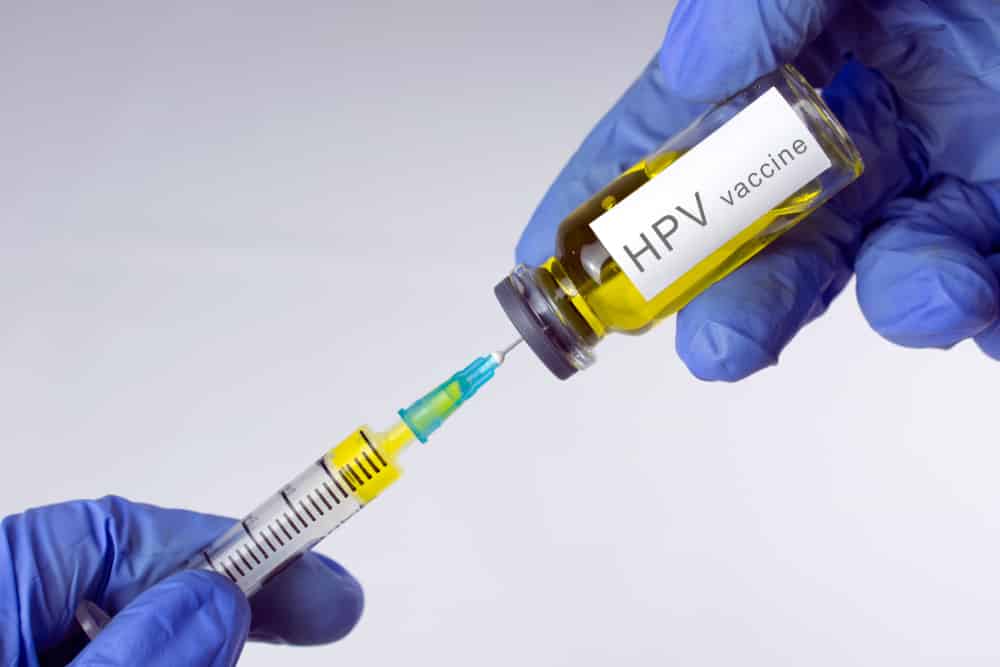
With all the ongoing controversy about vaccines that continues to circulate, I wanted to share some compelling evidence about the benefit of the vaccination against HPV or Human Papilloma Virus. HPV is the primary cause of cervical cancer as well as a significant factor in the development of anogenital warts, anal cancer and oropharyngeal cancer (cancer of the mouth and throat). HPV causes abnormal cellular growth, including condyloma (warts) and precancerous tissue changes known as dysplasia. More than 9 out of every 10 cases of cervical cancer are caused by HPV. HPV does not only affect women. Roughly 4 out of every 10 cases of HPV-related cancer occur among men. 70% of oropharyngeal cancers are caused by HPV. In fact, genital HPV infection is the most common sexually transmitted infection in the United States.
Fortunately, many of these cases of cancer can be prevented by the vaccine against HPV. There is a recent study in the journal Lancet (June, 2019) that showed a significant reduction in HPV type 16 and 18, two virulent HPV strains that are most commonly associated with cervical, anal and oropharyngeal cancers. This study also showed a significant reduction in anogenital warts among young men and women who had received the vaccination against HPV. Cervical dysplasia or “precancer” rates decreased among those women vaccinated. There was a significant 51% reduction in CIN2 (moderate cervical dysplasia or precancer) in girls aged 15-19 years and a 31% reduction in women aged 20-24 years. It also found that after eight years post vaccination, the prevalence of HPV 16 and 18 had significantly decreased by 83% among girls aged 13-19 years and by 66% in girls aged 20-24 years. The prevalence of genital warts among vaccinated females decreased significantly as well — 67% reduction in 15-17-year-olds, 54% reduction in, and a 31% reduction among women aged 25-29 years. Among boys, the rates of genital warts decreased as well — 48% decrease in 15-19-year-olds and by 31% among men aged 20-24 years.
These findings support the recommendation of The Centers for Disease Control and Prevention (CDC) and the American College of Obstetricians and Gynecologists (ACOG) for routine HPV vaccination for females and males aged 9-26 years. In fact, ACOG recommendations are further outlined as below:
ACOG Recommendations:
- The target age for HPV vaccination is 11–12 years for girls and boys, but the HPV vaccine can be given to both genders through 26 years of age. However, as of October, 2018, the CDC approved the HPV vaccine for adults up to age 45.
- For girls and boys who receive their first dose of HPV vaccine before 15 years of age, only two doses are needed. The timing of the two doses is 0 (baseline) and 6–12 months. If the interval between the two doses is less than five months, a third dose is recommended. If females or males receive their first dose at 15 years of age or older, three doses are needed and given at 0 (baseline), 1–2 months after the first dose, and six months after the first dose.
- Testing for HPV DNA is not recommended before vaccination. Vaccination is recommended, even if the patient is tested for HPV DNA, and the results are positive.
- Even if a patient previously has had an abnormal Pap test or history of genital warts, vaccination is still recommended.
To your health,
Dr. Couri
Sources:
Population-level impact and herd effects following the introduction of human papillomavirus vaccination programmes: updated systemic review and meta-analysis. The Lancet. June 26, 2019
About HPV. https://www.cdc.gov/hpv/parents/cancer.html
HPV Vaccination. ACOG Committee Opinion. Number 704, June 2017
